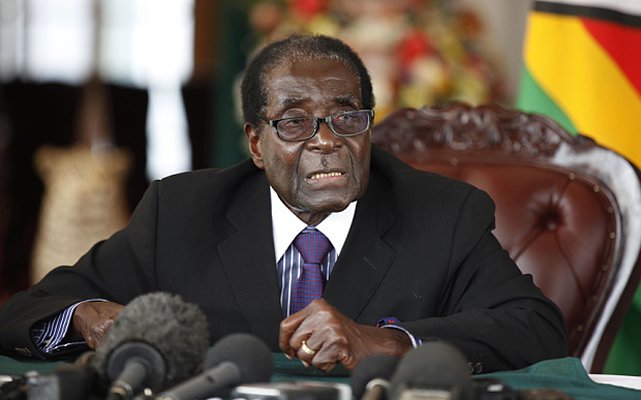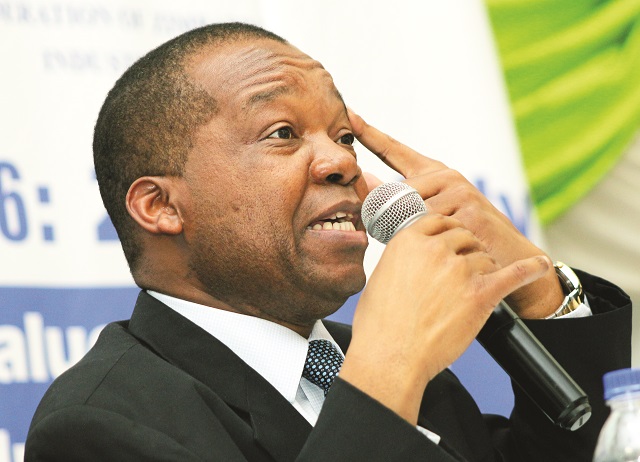The 21st February Movement. . . Celebrations’ resonance with decolonial-pan-Africanism

Richard Mahomva and Micheal Mhlanga
The Gregorian set terms of time have seen the global appropriation of February as the month of love.
This follows the Roman tradition of celebrating Saint Valentine (Valentinus) the mythic god of love.
According to one version of this fable, Valentinus was slain for contravening the religious patriotic oaths of Rome during the reign of Emperor Claudius the second.
Valentinus subscribed to alternative religious normative interests which were ostracised by the Claudius regime. Through the passage of time, Constantine became the emperor of Rome leading to the era of the empire’s Christianisation.
Valentinus was celebrated as a martyr of the Christian faith which had previously suffered at the hands of arbitrary ancient Rome.
With the advent of Rome’s dominance in constructing global Christian values, Valentinus was idolised as a Christian symbol of love and his legacy was also premised within the converging point of ancient Roman culture and the new Christian modernity marshalled by the Constantine era.
To this day, the world celebrates the 14th of February as a day dedicated to love as espoused in the legacy of Valentinus — now ordained a Saint by the Catholic liturgical order. On the other hand, the month of February has a different meaning to the global pan-African decolonial movement.
Our African brothers and sisters subjected to being American citizens due to slavery treat February as the Black History Month. This month marks a significant solidarity convalescence of Blackness as an identity reaffirming its lost essence and density owing to a background of subjugation and dehumanisation.
According to African nativist terms, February is a month reserved for the honour of the abundant and enormous contributions of the so-called “African-Americans” to the universal call for Black liberation in the Western hemisphere and in every part of the world where Africans are still under oppression.
Right next-door, across the Limpopo, South Africans have the Nelson Mandela International Day held annually on July 18. The day is dedicated to celebrating the life of South Africa’s decorated liberation hero President Nelson Mandela. On this day, people are encouraged to dedicate 67 minutes to social philanthropy.
This is how South Africans have chosen to pay homage to their liberation icon. In Zimbabwe we have the 21st February Movement which was introduced in 1986 to embolden Zimbabweans, the youths in particular, to re-live President Mugabe’s revolutionary ideas, charismatic leadership and commitment to African patriotism.
At the same time, the 21st of February is now a national sabbath which recognises how the President has been able to withstand the calls by the West to obliterate his political legacy after his radical blessing of the land reform.
In it is on this particular view and claim to pan-Africanism and decoloniality that we need to rethink perspectives of history and the future through lenses of Africa’s liberation transition. We need to look at the changing character of the black people’s struggles globally and appreciate all contributions of African revolutionary leaders towards true freedom.
That way we will be able to measure the consistency of the thought-leaders of our search for freedom as a race. On that premise, it would not be remiss for any right thinking Zimbabwean pan-Africanist to use the normative value of decoloniality to embrace the 21st February Movement as a sacred epistemic phenomena of defining the true terms of post-coloniality embedded in the person of President Mugabe.
Just as the Black History Month celebrates the iconic contributions of Black American greats streaming from the legendary Marcus Garvey right up to Malcom X, the 21st February Movement is an annual event dedicated to celebrating the life and achievements of President Mugabe as Zimbabwe’s apex of decoloniality.
President Mugabe was born on February 21, 1924, and is turning 93 this year. His birth in 1924 followed the 1923 constitutional formalisation of the anti-African Southern-Rhodesian government.
This constitution marked the transfer of power from Rhodes’ company to a new surrogate and shadow government. This practically meant that President Mugabe was born into a formalised social structure of repression organised along racial terms of the Rhodesian colonial hegemony.
As such, the 21st February Movement goes beyond celebrating the life and the person of President Mugabe, but it is a reminder of the African people’s journey in search of freedom in the brutal hands of the grotesque Rhodesian imperial power.
However, this does not conceal President Mugabe’s iconic proximity to the month of February as a sacred epistemic symbol of our past as Zimbabweans and the entire African race in the continent and those scattered abroad. Worth noting is that President Mugabe’s birth is a representation of the process of resistance to the then colonial power which was asserting its place and building its influence through the constitution of 1923.
This oppressive constitution was crafted to sustain the bloodline of Rhodesianism. This constitution was further validated by the heinous laws of land apportionment and husbandry impoverishment of Africans.
As a result, young Robert Mugabe and his contemporaries were born into a life of struggle and confronting the legalised dehumanisation of Rhodesian standards. Therefore, the 21st February Movement is not only a celebration of the life of a man who was born to later lead the fight against colonialism, but that day serves as a collective reflection of the journey to becoming Zimbabwe by patriotic Zimbabweans of yesterday.
It is on this day that we (as the youth) also celebrate how the heroic credentials of the nationalist generation have been manifest in our time to give guidance to the new road-map of decoloniality and pan-Africanism.
This aptly explains that President Mugabe as a centre figure of this February national ritual now transcends the existing political divide in modern Zimbabwe. This is because he personally stands as a symbol of being born into colonialism and being historically convicted by race consciousness to be anti-colonial and today President Mugabe distinctly poses as a symbol of Africa’s renaissance.
This is the same consciousness of his being (as a leader of the colonised) which roared at them when he lashed the treacherous plot of the British and the UDI to the Patriotic Front at the Lancaster Conference:
“If the London conference reaches no decision, we will dispatch our military men back to Africa. This means the intensification of the struggle. We can (do) without Lancaster House. That is a certainty. Of course we would welcome a settlement. But we can achieve peace and justice for our people through the barrel of the gun.”
Therefore, as we reflect on these words of anti-colonial Mugabe, today we celebrate his decolonial passion for the freedom of this country which has lived beyond the era of nationalism. As such, the 21st February Movement calls us to make sense of President Mugabe’s iconic defence of the agenda of Black economic empowerment after 1980.
Against that background it’s clear that President Mugabe needs to be celebrated as a decolonial political figure in as much as he is a living luminary of contemporary pan-Africanism.
Cde Mugabe’s Presidency has been characterised by a pan-African decoloniality paradigm of power and liberation of the economic for the benefit of the Black majority. In this context, decoloniality of power is a step ahead of the highly celebrated decolonisation processes across Africa defined along sovereign nation-state political freedom with no genuine
Afrocentric systems of reference and Black economic liberation. The land reform and economic indigenisation grand-plans set out in the era of Mugabeism are both reflective of a substantial character of what the process of decoloniality of power entails.
His leadership has offered an alternative for the fixated narrow conditions of a continental political-culture grounded in the past glory of decolonisation guided by neo-colonial standards.
The challenge of decolonisation is its policy preoccupation on cosmetic freedom and how it failed to fight the hidden force of imperialism in modern governance structures of Africa. Therefore, today as we count down to the 21st February we need to appreciate President Mugabe as a leading figure of decolonial pan-Africanism in Zimbabwe. Beyond the partisan appropriation of President Mugabe, let this year’s edition of the 21st February Movement be a national reminder of the blessing that President Mugabe is to the global agenda of pan-African decoloniality.
The writers are founding trustees of Leaders for Africa Network-LAN, a Bulawayo based social-science think tank. They can be contacted for comments on: [email protected]








Comments